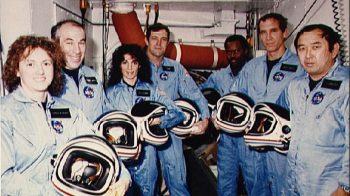Astronaut Chris Hadfield on living above the sky
The sky’s not the limit for Commander Chris Hadfield, a retired Canadian astronaut. For him, it’s just the start of everything else.
Hadfield spent more than 150 days living in space, the bulk of it during a three-month stint at the International Space Station where six astronauts from countries all over the world live and work.
Hadfield’s time in space coincided with a change in social media and communications. During his first space voyages in 1995 and 2001, there was no way for Hadfield to relay information about his experiences while in space. But, by the time he got to the ISS in 2013, improvements in technology and huge leaps in social media interaction made it possible for him to keep in touch: on Twitter, Facebook and YouTube.
Hadfield says when it comes to living in space, there has been significant change. People from 15 different countries left Earth in November of 2000.
“For the last 14 years, we have permanently been living off the planet, and when I say we, I mean humanity,” he says. “Once you start permanently settling somewhere, then it really just becomes a new part of human culture.”
That culture is still in early development, but it is growing as more stories start coming back from space. The ISS, for instance, is now home to a guitar and an espresso machine. Astronauts are becoming more accustomed to sending videos home, and telling people on Earth about their out-of-this-world lives. Soon, space culture will include an album of folk music Hadfield recorded in space.
He compares space exploration to early settlers of undiscovered continents.
“When the first settlers came across the Bering Strait 20,000 years ago from Asia, their culture changed the place and defined the people themselves, and we’re just getting into that stage of leaving Earth in space,” he says.
So where to next from the ISS?
“It will go eventually from the space station to the moon, over the next few generations, and from the moon eventually to Mars, just as we’ve spread over the whole surface of the Earth,” Hadfield says.
There’s a lot happening in the world. Through it all, Marketplace is here for you.
You rely on Marketplace to break down the world’s events and tell you how it affects you in a fact-based, approachable way. We rely on your financial support to keep making that possible.
Your donation today powers the independent journalism that you rely on. For just $5/month, you can help sustain Marketplace so we can keep reporting on the things that matter to you.


















